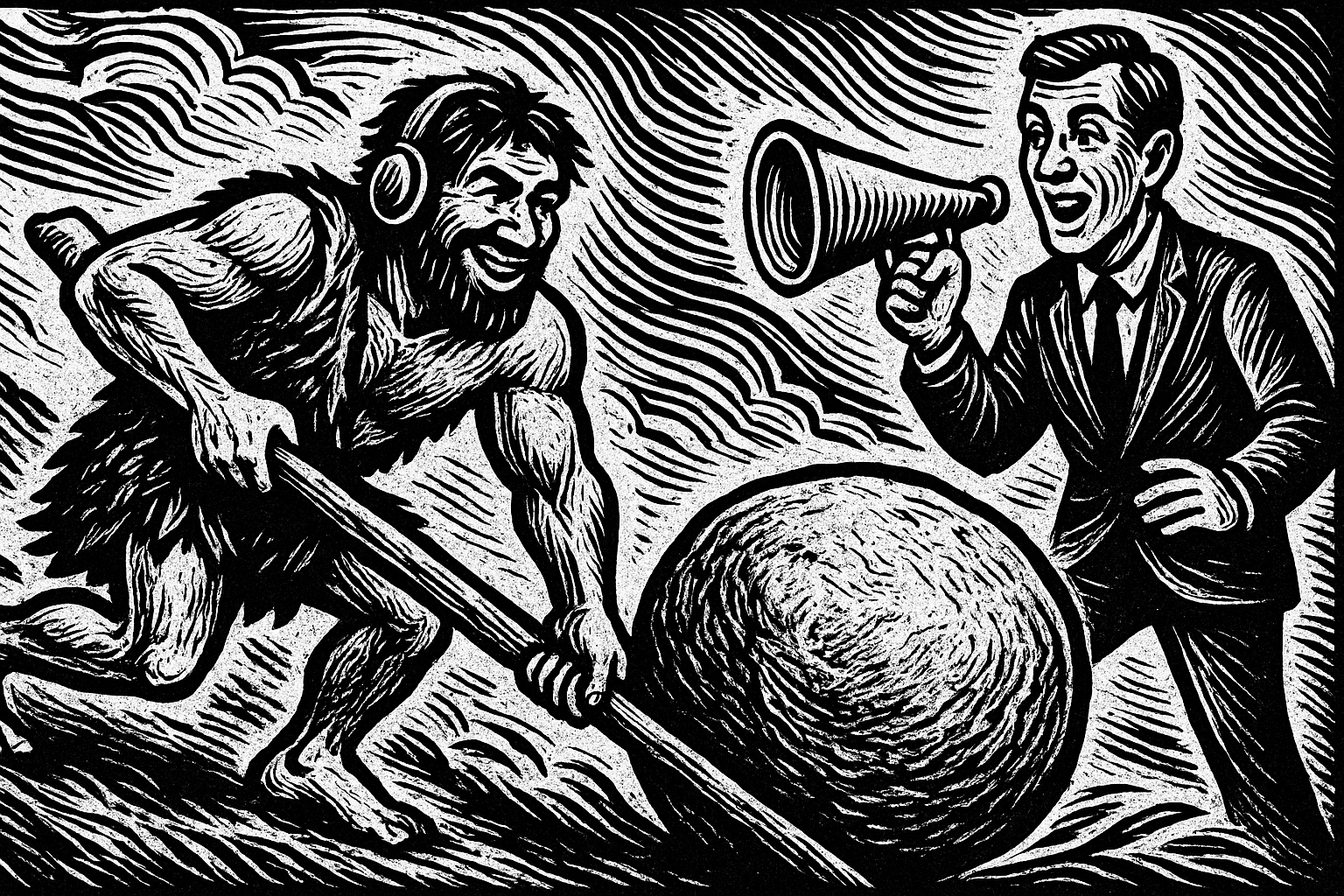Force Multiplier Math
Thomas is thirty. He’s a perfectly decent adult. Dresses fine. Pays bills. Owns plates. People at work like him. His manager has used the word “promising” more than once, though usually in a tone that suggests the promise is still somewhere off in the distance, like a package that was marked “shipped” three weeks ago. Thomas doesn’t hate his job. He doesn’t love it either. Life, in general, is fine. Which is its own kind of red flag.
He’s not stuck exactly. But he is circling. Each year feels like last year with some slight design changes. New manager, same meetings. Better gym shoes, same lack of gym. He keeps waiting for something to click, or level up, or kickstart. Instead, things kind of plod along. He has friends, sort of. A dating history that includes a few “almosts” and hobbies that mostly involve screens. There’s no dramatic failure to point to, which makes it harder to know what, if anything, is wrong.
Thomas, it turns out, is terrible at math. Not the kind with calculators. The kind that decides whether your life actually goes anywhere. Let’s call it Force Multiplier Math. The name sounds like a PowerPoint deck for a Stallone movie. But it’s real, and it’s running in the background whether you believe in it or not.
This equation has three parts: your mentor (who helps you aim), your lever (the skill or habit you apply), and your compounder (the situation that multiplies effort over time).
At work, Thomas had developed a few strong skills. He could manage tasks, hit deadlines, and stay calm under pressure. But no one had ever taken the time to coach him. His mentor, if you could call it that, was mostly podcasts and guesswork. And his environment did not reward growth. Promotions felt random. Good work disappeared into the ether. He was applying effort through a decent lever, but without guidance and without a system that amplified anything. That is why he kept moving but never felt like he was getting anywhere.
6 × 3 × 1 = 18
This is what makes life feel weird sometimes. You see people who are less capable cruising past you, and you assume something must be rigged. It is. It’s rigged by the math. Because a person with average skills, in a strong environment, with decent guidance, will outperform a solo genius in a fog every time. Multiplication punishes the weak link. If any part is close to zero, the whole output tanks. The guy you think is lucky might just be aligned.
5 × 7 × 6 = 210. However, 10 × 10 × 0 = 0.
This is multiplication, not addition, because the three variables — mentor, lever, and compounder — are not interchangeable and do not stack linearly. A strong lever used in a poor environment without any guidance will not get you very far. Likewise, even the best mentor can't create momentum if the person they’re helping has no skill to shape and nowhere meaningful to apply it. Multiplication captures the fragility of neglect and the power of alignment. If any part is near zero, the whole system loses force. The math works because life is not generous with wasted effort. It rewards those who connect capability, direction, and environment. That is what the model is trying to measure. Not how hard you are working, but how well the parts are working together.
Thomas is not the exception. He’s the rule. If you’ve ever felt stuck without a clear reason, you’re probably doing some version of this math too.
People like Thomas do not need a life overhaul. They need a socket wrench. Something to tighten the piece that is loose. For some, that means finding a better environment. For others, it means upgrading from “I’m just figuring it out” to “someone helped me see what I was missing.” And for many, it means choosing one skill and getting unreasonably good at it instead of being medium at everything forever.
Thomas eventually figures this out. He doesn’t go to a monastery. He doesn’t invent an app. He finds a boss who actually gives feedback. He picks one skill and doubles down. He switches jobs. Not dramatically. Just enough to matter. Nothing flashy. But the equation starts to change.
6 × 7 × 5 = 210
Force Multiplier Math is always running. You do not escape it by working harder. You escape it by tuning the parts. Fix the zero. Raise the lowest dial. Then go make more messes. This time with traction.
That is the real work. Not just doing more. Doing better with what you already carry.
People ask if AI can be a mentor. The honest answer is maybe. But not right away.
It’s a decent tool if you already have some direction. It can help you think through a decision, polish your ideas, or give you a faster way to say what you were already trying to say. It can point out gaps. Sometimes it even asks the right questions. But it doesn’t know your blind spots. It doesn’t know when you’re lying to yourself. And it’s never going to look you in the eye and tell you to stop drifting and do the real work.
So yes, you can use AI to sharpen a lever. You might even get a hint at a better path. Just don’t confuse it for someone who’s walked that path, or someone who actually cares if you follow it.
The equation still holds. AI might give you leverage, but it won’t give you alignment. You still need real people, real friction, and real stakes.
Use it. Just don’t hide behind it. The math will catch that too.
Some of the research and iterations that went into this post.
